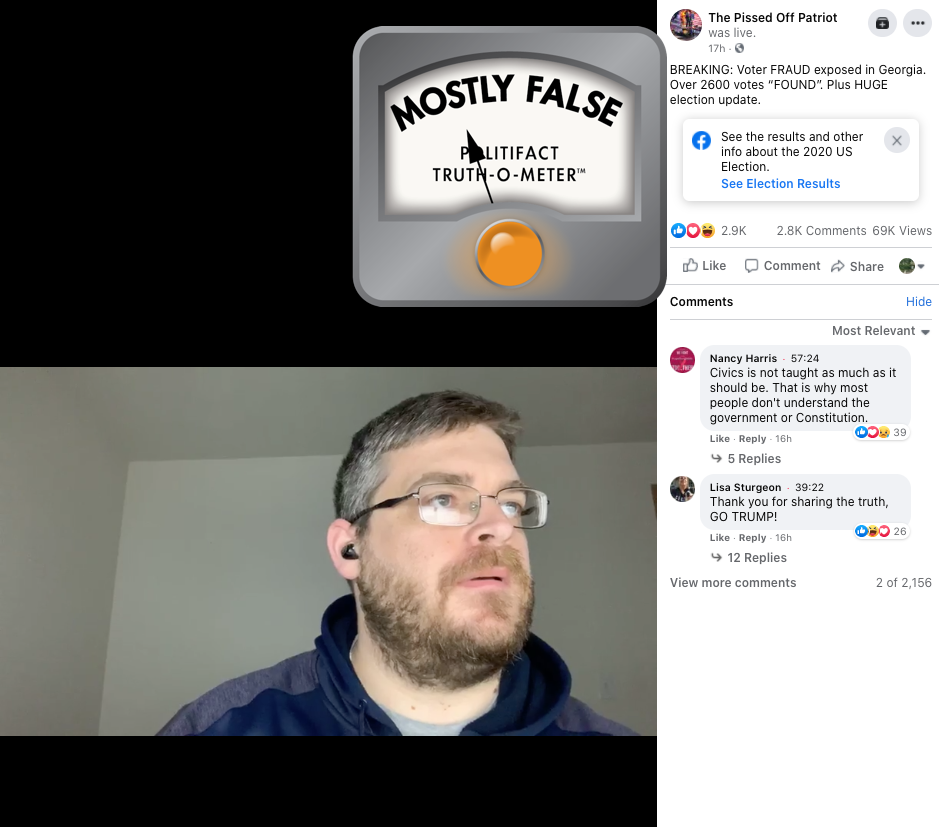

The authors found that heightened emotionality as well as reliance on emotion rather than reasoning, increased belief in the accuracy of fake news. Similarly, Martel, Pennycook demonstrated the crucial role of reasoning in distinguishing fake news from genuine news. Pennycook and Rand suggest that it is not faulty reasoning but instead a lack of reasoning that undermines the capacity to assess the accuracy of news. Although a behavioural heuristic such as this may be helpful to reduce the cognitive burden on an individual-because it means that one doesn’t have to evaluate each claim individually-the heuristic can result in the generation of false beliefs. For instance, conservatives may be more likely to uncritically accept claims made on Fox news, especially when such content confirms prior beliefs, but may argue vehemently against claims made on CNN in order to defend prior beliefs.

Individuals may also be susceptible to fake news because they trust the news source, or because it offers ideologically reinforcing information, that is, information that coheres with pre-existing beliefs. For instance, a lack of trust in science and low numeracy skills have been found to correlate with susceptibility to misinformation. Whether an individual is likely to believe misinformation and fake news is determined both by individual characteristics and contextual factors. Misinformation is insidious as once false information forms the basis for a false belief, it is very hard to change the belief. Similarly, misinformation undermines vaccine acceptance. The generation of fake news and its capacity to gain traction has increased in tandem with the rise of social media platforms as popular sources of news and information acquisition.Ī mistrust of scientific information and belief in the accuracy of misinformation substantially undermines efforts to manage the pandemic and limit the spread of COVID-19 For instance, preventative measures such as mask wearing and physical distancing are only effective if they are adhered to by the majority of individuals, but such measures are less likely to be followed if the scientific information underpinning them is not trusted. For example, fake news disseminated during the 2016 US presidential election accrued far more attention in the form of likes, shares and reactions on Facebook than real news. Misinformation has also been found to generate more interest and emotional engagement than real news because of its novelty. Fake news is rapidly disseminated online and social media is a primary outlet for the spread of fake news and misinformation, given that these platforms are widely used for news consumption in general. The World Health Organization (WHO) has referred to the problem of large amounts of misinformation spread during the COVID-19 pandemic as an “infodemic”. It has also generated misinformation, often grounded in conspiracy theories, which are readily believed in spite of the fact that such claims may be implausible and are not verified as accurate. The COVID-19 pandemic has produced a massive demand for information concerning, for instance, the origin of the virus, routes of transmission, prevention, disease severity, and disease management. Exposure to misinformation engenders faulty beliefs in others and undermines efforts to curtail the spread of COVID-19 by reducing adherence to social distancing measures and increasing vaccine hesitancy. However, even if information is shared in good faith and not for the purpose of deceiving or misleading others, the spread of misinformation is nevertheless highly problematic. Like general samples, our participants were typically motivated to share possible misinformation due to interest in the information, or to seek a second opinion about claim veracity. We found that 24% of participants had shared possible misinformation and that this was predicted by a lower belief in science. We also investigated predictors of willingness to have a COVID-19 vaccine and found that although vaccine acceptance was high on average, it decreased as a function of lower belief in science and higher conspiracy mentality. We investigated whether subscribers to a fact checking newsletter (n = 1397) were willing to share possible misinformation, and whether predictors of possible misinformation sharing are the same as for general samples. Like other disease outbreaks, the COVID-19 pandemic has led to the rapid generation and dissemination of misinformation and fake news.


 0 kommentar(er)
0 kommentar(er)
